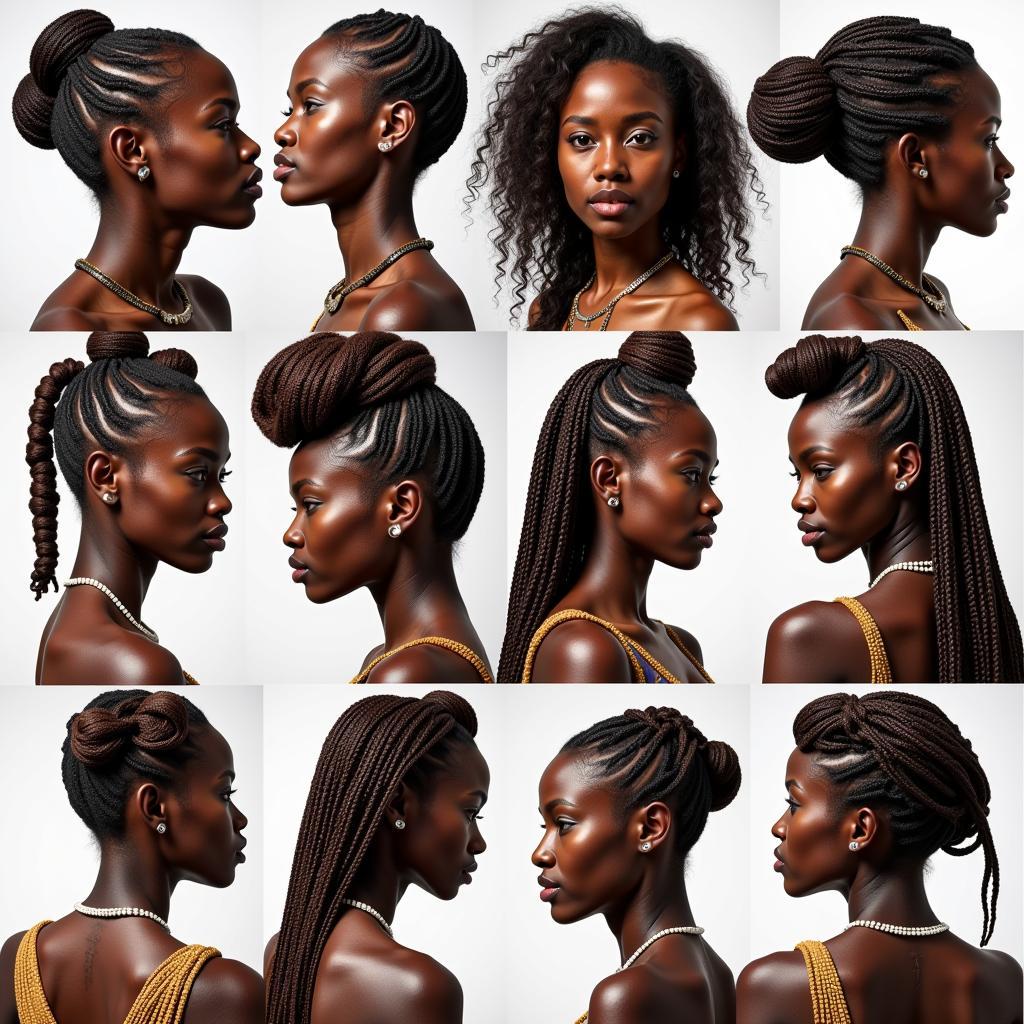African Culture and Lifestyle: A Journey Through Traditions, Art, Music, and Food
This article delves into the rich tapestry of African culture, offering a glimpse into its diverse traditions, captivating art, rhythmic music, tantalizing cuisine, and unique customs. Join us on a journey through the continent’s vibrant history and fascinating contemporary expressions.
Africa is a continent of extraordinary diversity, boasting a rich history and a vibrant cultural landscape. From the ancient pyramids of Egypt to the bustling markets of Morocco, from the traditional dances of Senegal to the contemporary music of Nigeria, Africa’s culture is a captivating blend of tradition and modernity.
Exploring the Vibrant History of Africa
Africa’s history is a story of resilience, innovation, and cultural exchange. The continent has been home to some of the world’s oldest civilizations, such as the ancient Egyptians, who left behind a legacy of architectural wonders and technological advancements. The kingdoms of Mali, Ghana, and Songhai flourished in West Africa, renowned for their wealth, trade, and sophisticated social structures.
These ancient civilizations laid the foundation for the diverse cultures that exist today. Throughout history, African societies have developed unique traditions, beliefs, and practices that reflect their rich cultural heritage.
Unraveling the Rich Tapestry of African Art
African art is a testament to the continent’s creativity and artistic expression. From traditional masks and sculptures to contemporary paintings and installations, African art reflects the cultural diversity and spiritual beliefs of its people.
Traditional African Art:
- Masks: Used in ceremonies, festivals, and rituals, masks are symbolic representations of deities, spirits, or ancestors.
- Sculptures: Often crafted from wood, bronze, or ivory, sculptures depict animals, humans, and deities, reflecting the beliefs and values of different communities.
- Textiles: Vibrantly colored fabrics, often woven or dyed with natural materials, are used for clothing, decoration, and ceremonial purposes.
Contemporary African Art:
- Painting: A blend of traditional techniques and modern influences, contemporary African painting explores social, political, and cultural themes.
- Installation: Artists use diverse materials and innovative techniques to create immersive environments that engage with viewers on a deeper level.
- Photography: From documenting everyday life to exploring social issues, African photography offers a powerful lens on the continent’s realities.
Immersing in the Rhythms of Africa
African music is a vibrant and dynamic art form, characterized by its rhythmic complexity, rich instrumentation, and soulful vocals. From traditional drumming and singing to contemporary genres like Afrobeat and Hiplife, African music continues to captivate audiences worldwide.
Traditional African Music:
- Drums: The heart of African music, drums are used for communication, storytelling, and accompanying dances.
- Singing: Vocal traditions vary across the continent, ranging from call-and-response singing to polyphonic harmonies.
- Instruments: Traditional instruments like the kora, balafon, and mbira create unique sounds and textures.
Contemporary African Music:
- Afrobeat: A genre that combines traditional African rhythms with elements of jazz, funk, and soul.
- Hiplife: A fusion of hip-hop and Ghanaian highlife music.
- Mbalax: A Senegalese music style characterized by its fast tempos and energetic rhythms.
Savoring the Flavors of Africa
African cuisine is a diverse and flavorful tapestry, reflecting the continent’s unique geography, climate, and cultural traditions. From the spicy stews of West Africa to the flavorful tagines of Morocco, African food offers a sensory journey for all palates.
Key Ingredients:
- Rice: A staple food in many African countries.
- Cassava: A starchy root vegetable used in various dishes.
- Beans: A versatile legume, often used in stews and soups.
- Spices: African cuisine is rich in spices, including ginger, cumin, turmeric, and chili peppers.
Popular Dishes:
- Jollof Rice: A flavorful rice dish, often served with chicken, fish, or vegetables.
- Fufu: A starchy dough made from cassava, plantains, or yams, commonly served with soups and stews.
- Tagine: A Moroccan stew, cooked in a clay pot called a tagine, featuring meat, vegetables, and spices.
Understanding African Customs and Traditions
African customs and traditions are rooted in centuries of cultural evolution and reflect the values, beliefs, and practices of different communities.
Key Aspects:
- Family: Family is central to African culture, with extended family networks playing a significant role in daily life.
- Respect for Elders: Elders are revered for their wisdom and experience, and their opinions are highly valued.
- Hospitality: Africans are known for their warm hospitality, offering food, shelter, and companionship to guests.
- Ceremonies: Rituals and ceremonies are an important part of African life, marking significant events like birth, marriage, and death.
Expert Insights
“Africa’s cultural diversity is truly astonishing. From the vibrant art to the soulful music, every aspect of African Life tells a story of resilience, creativity, and community.” – Dr. Sarah Thompson, Anthropologist
“The food in Africa is a testament to the continent’s rich culinary heritage. The combination of flavors and ingredients is truly unique and unforgettable.” – Chef Johnathan Williams, Culinary Expert
Africa’s cultural landscape is a fascinating and dynamic place, where traditions blend with modernity, and creativity thrives. Exploring the continent’s rich history, diverse art forms, captivating music, flavorful cuisine, and unique customs offers a truly enriching experience.

